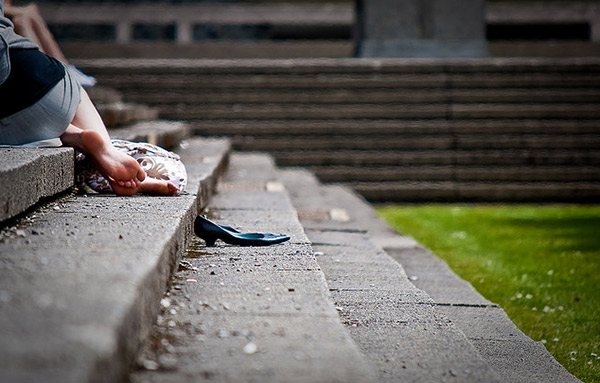"We like 'em young! Y is for your sister, O is for oh so tight, U is for underage, N is for no consent, G is for grab that ass!"
If you were at Saint Mary's University or the University of British Columbia for frosh week in 2013, you might have heard that charming chant, or variations of it, echoing across campus. Both schools took action against the student leaders responsible -- but given that students said the chant had been a fixture at Saint Mary's frosh for years, it's astonishing it took so long for someone to notice.
Last year, the University of Ottawa suspended its entire men's hockey team until 2017 following an investigation that led to charges of sexual assault being laid against two players. That incident took place just weeks after Anne-Marie Roy, then the president of the school's student union, was made the subject of a lewd Facebook chat between five fellow students, including a vice-president in the student union.
At Dalhousie, four professors decided to go public in January this year about vile and misogynist Facebook posts made by students at the university's school of dentistry. In their opinion, the administration had not acted fast enough to protect the safety and well-being of affected students at the university.
Late last year, a student at the University of Saskatchewan went to the media as well. On New Year's Eve in 2011, she was raped in one of the student residences on campus. When she went to the university for help, she was told -- incorrectly -- that nothing could be done unless her attacker was criminally convicted. Campus security failed to followup on her mother's request that security footage from that night be preserved. Students were never told there might be a predator on campus.
It's enough to make you think university campuses aren't the safest places for women.
That certainly was my experience. As a student, I remember quiet conversations at parties where women talked about nights that had "gone wrong." I've spent afternoons looking up sexual assault resources for friends in cities across the country who felt like they had no one else to talk to. In my first year as an undergrad, I was warned away from certain male students by older female friends -- their reasons were vague, but still completely obvious. There is no doubt in my mind that there is a sexual assault problem on Canadian campuses.
Unfortunately, the data to back up -- or to disprove -- my anecdotal evidence just doesn't exist in Canada. As of last November, only nine of 78 Canadian universities had any sort of policy to deal with sexual assault. Universities aren't even subject to reporting requirements, much less universal standards for reporting sexual assaults; as a result, it's impossible to compare self-reported numbers between schools.
When the CBC tried to do such a comparison, they found that the numbers of reported assaults were generally well below the national average. Chances are that's not because there are fewer sexual assaults happening on campus -- more likely, survivors don't feel safe reporting the assaults to their universities, or feel like their universities won't do anything to help.
US leaps and bounds ahead
In the United States, Title IX -- federal legislation that prohibits sex discrimination in education -- has long provided a legal framework to protect students. With too many cases of campus sexual assault in the news, the White House implemented an awareness campaign in 2011 to make sure colleges and universities understood their obligations under the law.
Title IX requires that schools create and publish procedures for resolving sexual discrimination, including sexual violence. It grants survivors of sexual assault the right to immediate assistance, including support in changing classes or moving dorms. It requires schools to provide information about confidential support services, and to take steps to protect the student body from future violence.
In addition to federal laws, states have taken steps to make campuses safer. Last year, California passed legislation creating an "affirmative consent standard" for universities investigating sexual assault allegations. In other words, rather than forcing survivors to prove that they said "no," this law puts the burden on the other party to prove that everyone said "yes." The governor of New York wants to pass similar legislation in his state.
While we don't have comparable legislation in Canada, we have made some progress. Twenty-four public colleges in Ontario have drafted a sexual assault policy that will soon be implemented across the province. Meanwhile, Ontario Premier Kathleen Wynne has struck a committee to combat sexual harassment and violence, and that committee will release expectations regarding campus policies on sexual assault.
But in other provinces, students are still waiting.
Students should feel safe at school. If something threatens that safety, students should have accessible, transparent and supportive options available to them. Given that most Canadian schools haven't even bothered to develop sexual assault policies, we clearly can't depend on universities to resolve this problem on their own. Governments need to step in, and take steps to make sure everyone can feel equally safe on campus. ![]()
Read more: Rights + Justice, Education















Tyee Commenting Guidelines
Comments that violate guidelines risk being deleted, and violations may result in a temporary or permanent user ban. Maintain the spirit of good conversation to stay in the discussion.
*Please note The Tyee is not a forum for spreading misinformation about COVID-19, denying its existence or minimizing its risk to public health.
Do:
Do not: